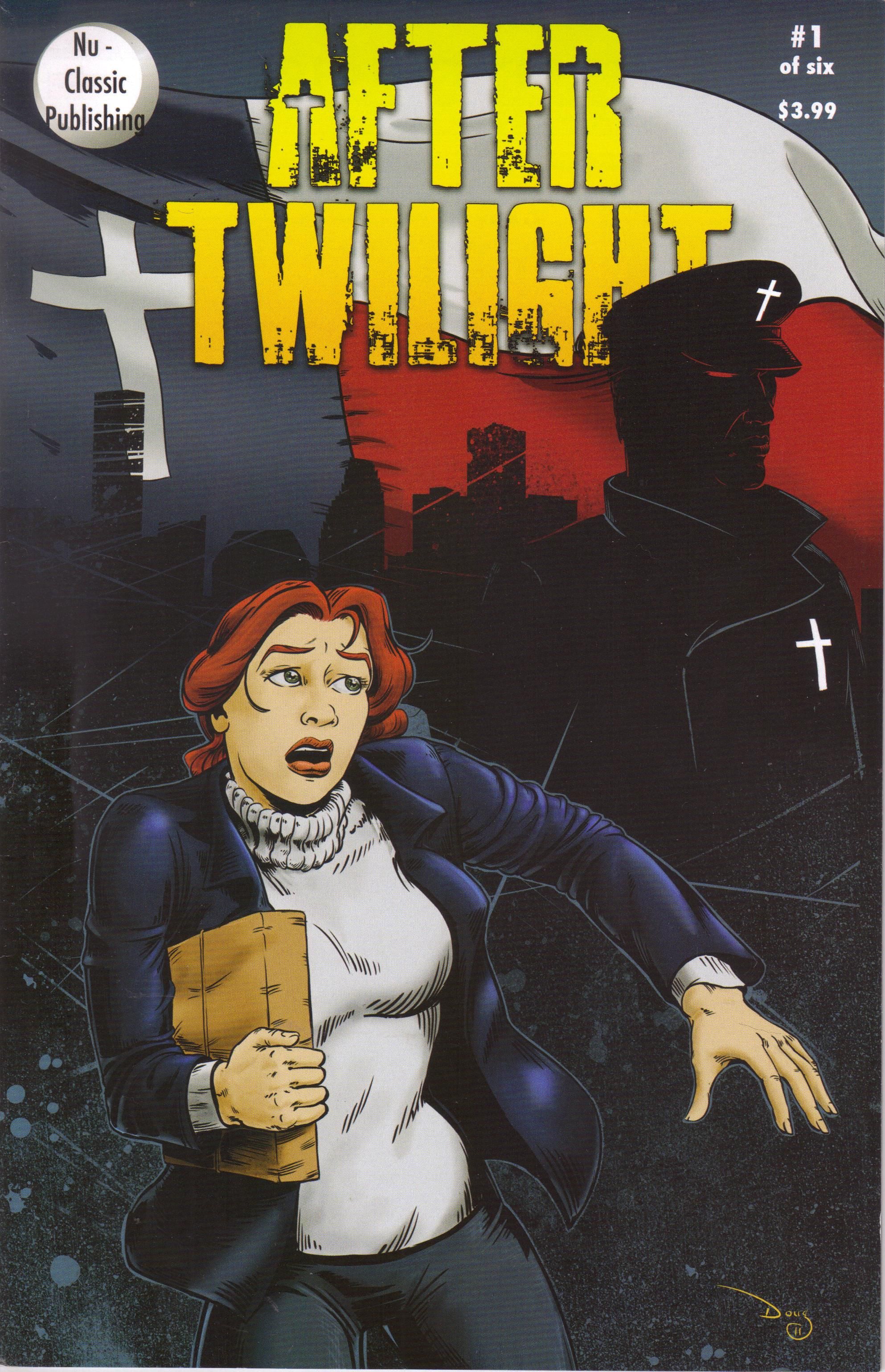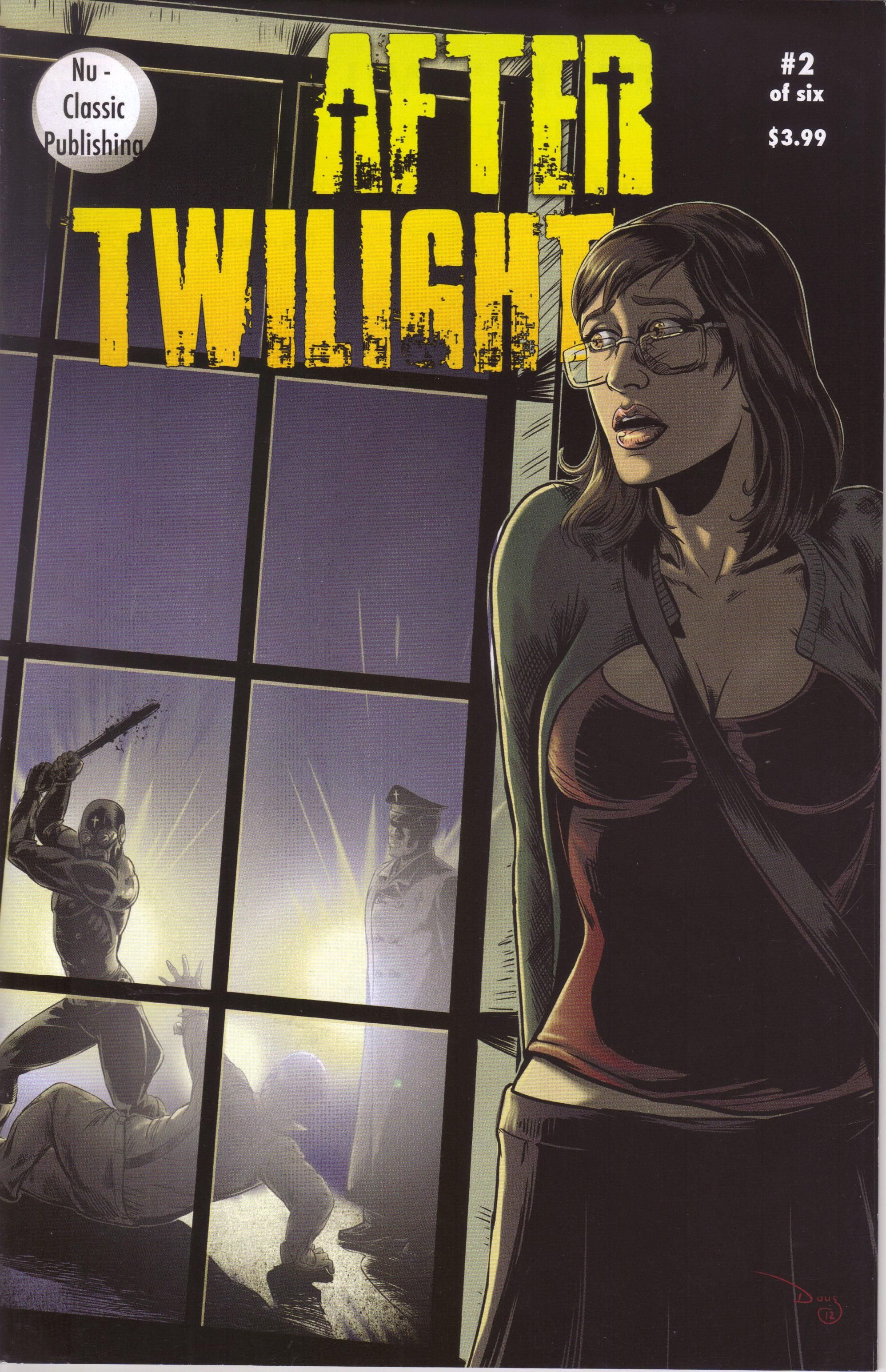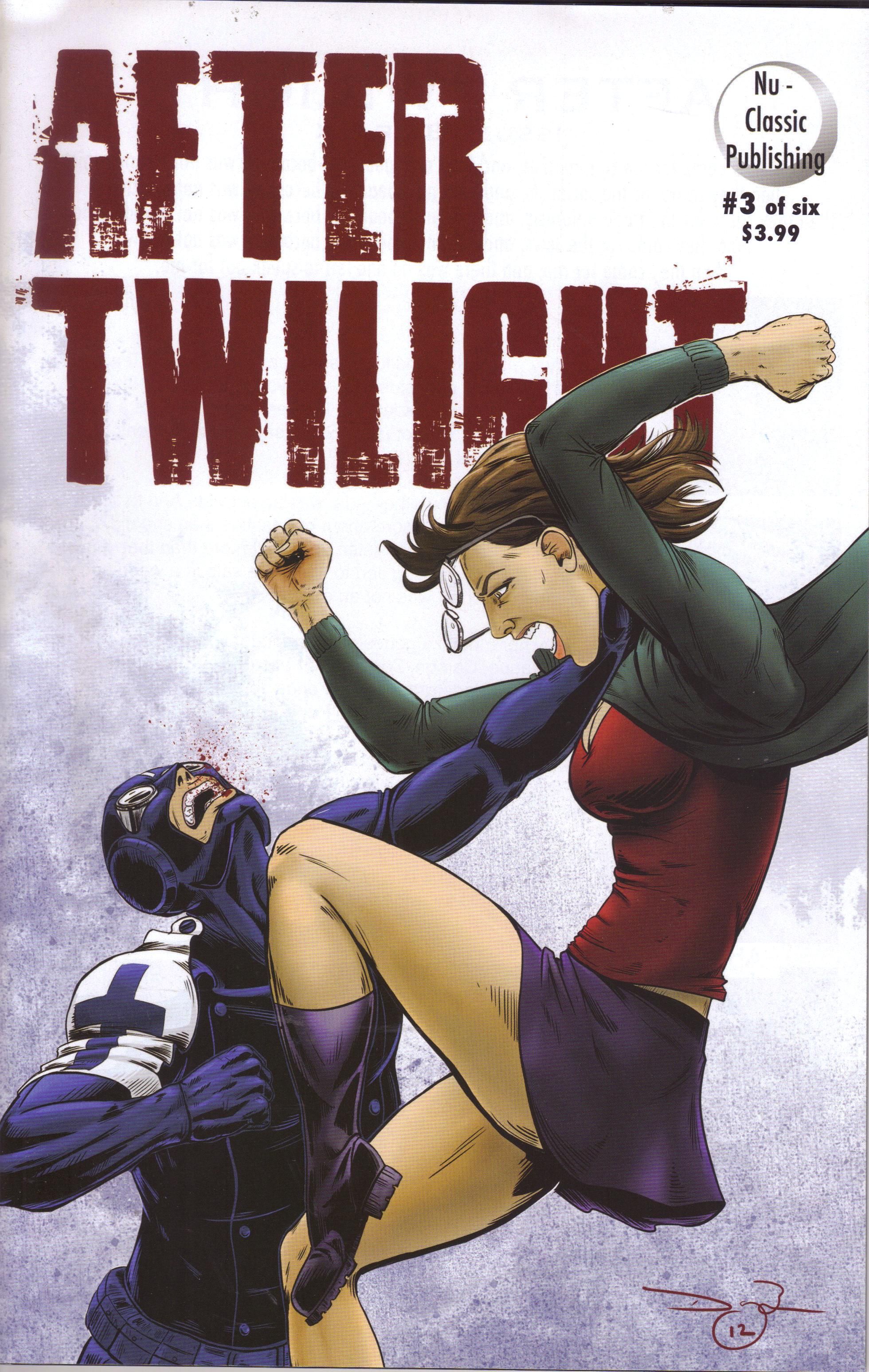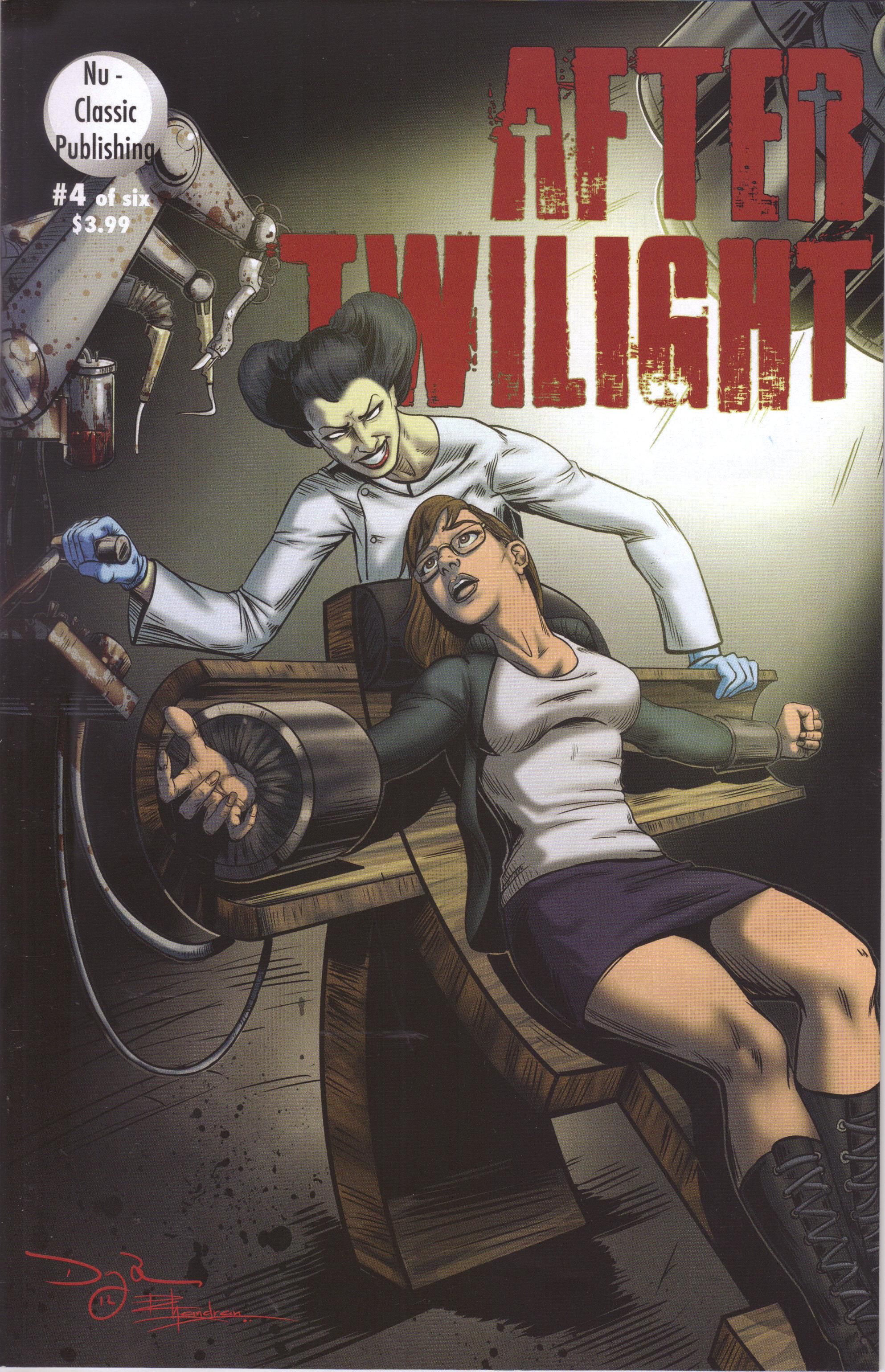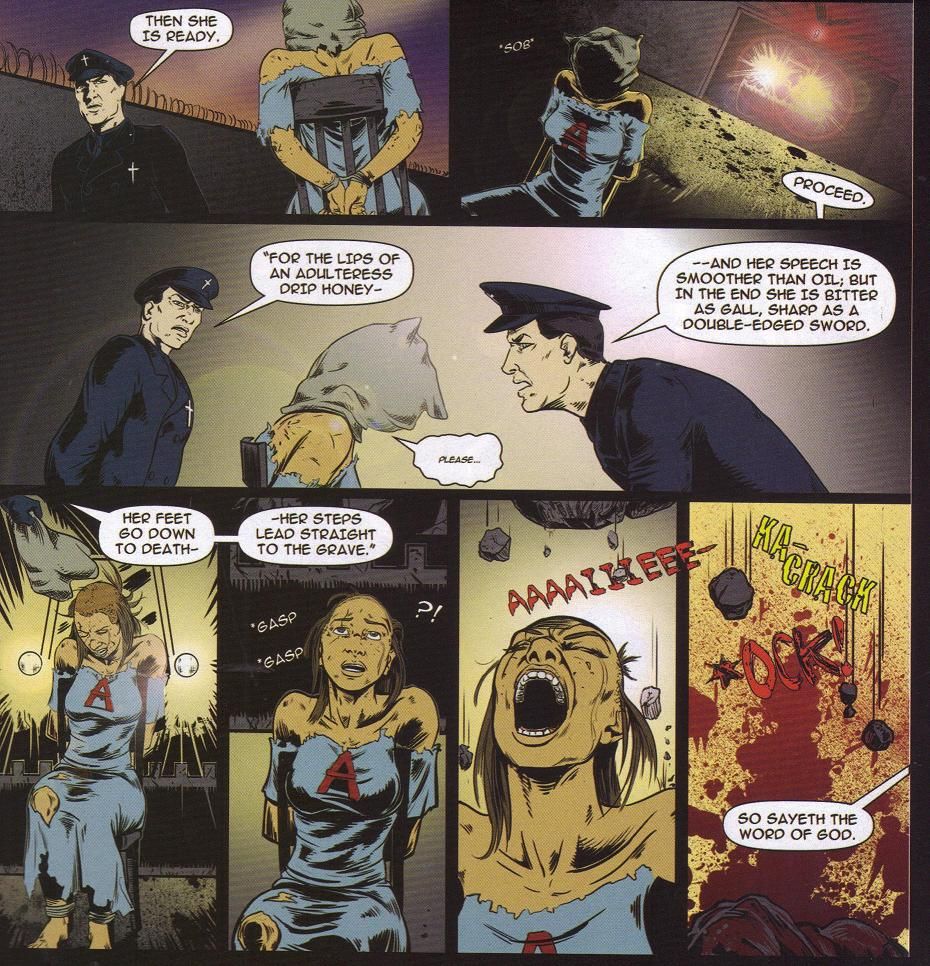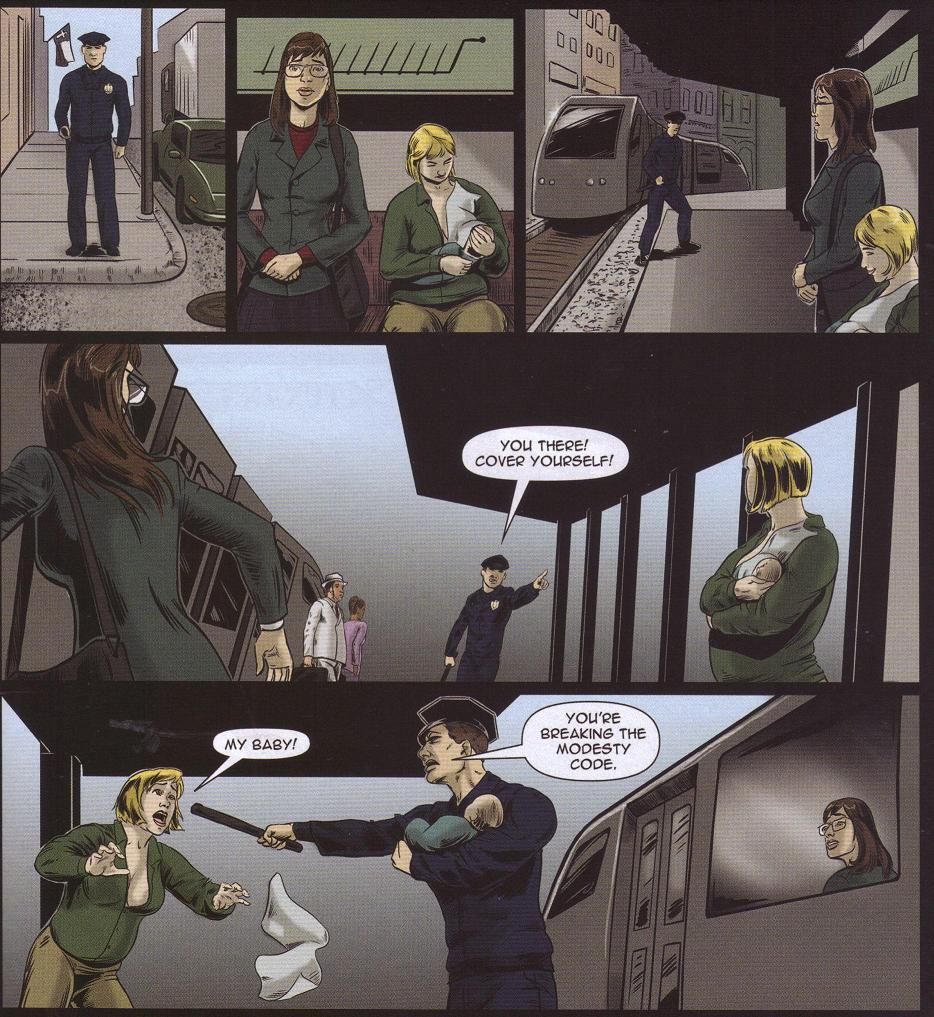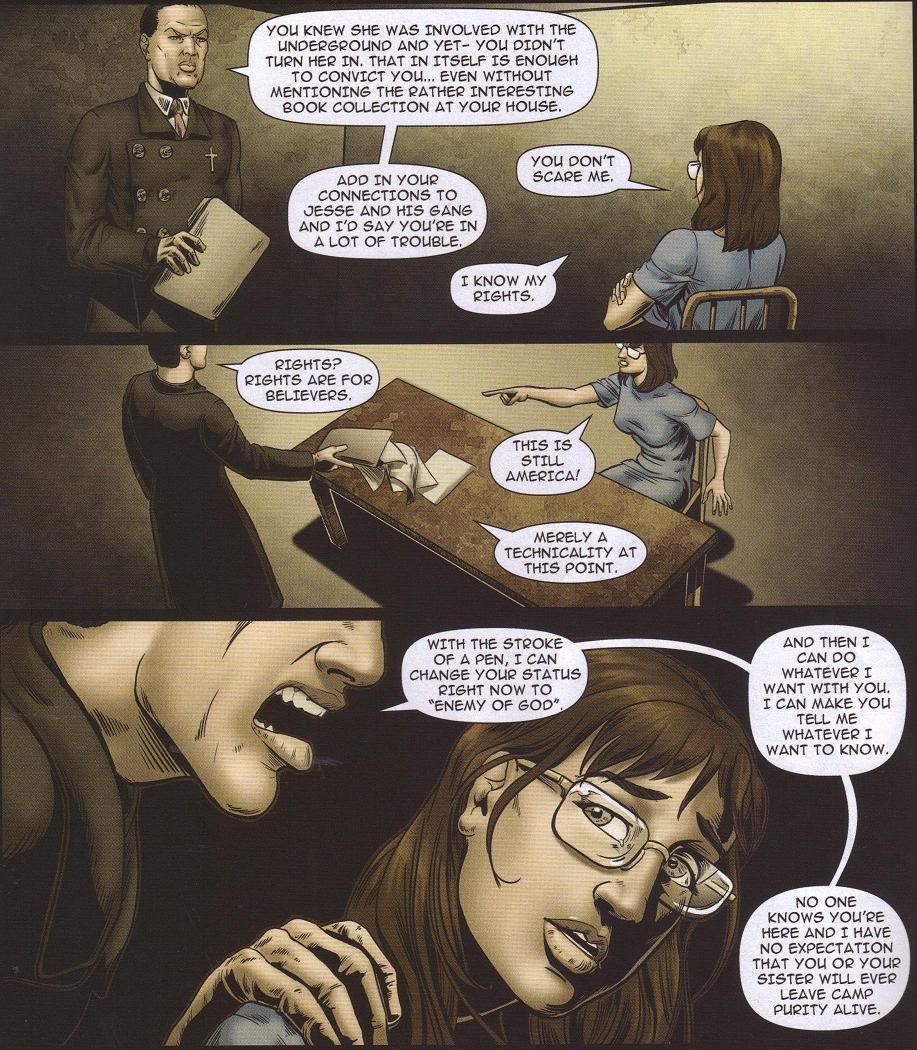Yes, it's more comics that arrived in my mail box. Let's see what this one is all about, shall we?
After Twilight is a six-issue mini-series written by Gary L. Watson, Richard P. Alvarez, and Sandra E. Yates, drawn by Douglas Brown, and colored (in issues #2-3) by Meagan Tanner and (in issue #4) by Chandran. It's published by Nu-Classic Publishing (which means, I believe, that it's self-published), and each issue is $3.99.
As Watson explains in the backmatter of issue #1, this comic has been around in different forms for a while. Watson made a short film in 2004 on the same subject matter and eventually made a "feature-length film" out of it.
Now he's turned it into this comic book, which is his first love, and here we are! After Twilight tells the story of a Texas that has been turned into a fundamentalist Christian state on the verge of seceding from the United States. The book mainly takes place in 2022, but Watson shows us that the inciting incident for the change takes place in 2012. A church in Houston is bombed, and this pushes the fundamentalists over the edge, as they quickly turn Texas into a Christian state in which all other faiths are banned (even Christian sects like Episcopalianism), books are tightly regulated, the teaching of evolution is forbidden - you know, the standard stuff in fiction like this. The main character of the book is Jen Frazier, a librarian who secretly takes banned books home to keep them safe but who gets involved in the underground rebel movement after her sister is captured by the regime. Meanwhile, the main bad guy is Michael Streetman, whose wife was killed in the church bombing and who now is a commander of an elite police force that cracks down on all manner of religious crimes. The reverend at the church that was bombed is now the mayor of Houston, and in issues #3 and 4 he begins to express some doubts about the way the regime is handling dissidents. Presumably this will play into the climax of the story in issues #5 and 6.
I always appreciate it when creators send me their stuff for free, because I know the trouble they go through to publish comics and get them out there, but I do have to be honest, and After Twilight doesn't really resonate with me all that much. I don't have a problem with the story, but I'm always wary about books that show a quick descent into extremism, especially in the U.S. I know it has happened before and will probably happen again, but while Watson has compiled videos of the kind of extremism present in the book, it seems that we have so many different kinds of extremists in the country that no one group can win out. Whenever one group gains a bit of prominence with their extremist views, another group immediately springs up to counter them. The creators of this comic live in Texas, so I suppose they'd know a bit more about the political situation there, but let's consider Arizona, which many people think is the craziest state in the country. Even with all the weird crap our legislature passes, we're nowhere near the police state that Texas is in this comic. Even Arizona has enough people willing to stand up to the more extremist stuff that shows up, and I can't believe that this kind of society would spring into existence so quickly in Texas.
You may say that all of this is beside the point, and Watson, Alvarez, and Yates are just trying to get us to a time when this extremism does exist and it doesn't matter how we got here, but for me, at least, I couldn't stop thinking about it while I was reading this. It ruined my suspension of disbelief, in other words, because as shitty as people are in the U.S. sometimes, I couldn't believe that things would get this bad. Maybe I'm naïve, but that's the way it is.
Other than that, the story simply doesn't do much for me. It reads like a fairly by-the-numbers thriller, with everyone playing their parts. We know that Streetman is eeeeevil, for instance, because he doesn't want his daughter listening to her iPod in church. THE MONSTER!!!! So of course when his wife is killed he becomes a thug for the regime. The other characters are plot devices - the Frazier sisters are studies in contrast, with Zoe (the younger one) the devil-may-care rebel (of course she has red hair) while Jen is the mousy one who has had to raise her younger sister after their mother was killed and doesn't want to get involved in the rebellion. The other characters slot into their roles in the story perfectly well, but they don't really exist as people. I didn't relate to any of the characters because they're there to serve the plot, and when the plot is as simplistic as this, it means that I can't really get into the story. It's frustrating, because the idea of extremism and how it can sneak into society is an interesting idea, but I don't think the writers do all that much with it.
I didn't love Brown's artwork, either. There's nothing terribly egregious about it, but it's just simply ... there.
Brown gives us a lot of different kinds of people, which is always nice - everyone has a unique look and we can easily tell people apart, which sounds like I'm damning with faint praise, but it's not really, because that's not easy. I do like the design of Streetman's outfit, which is pretty terrifying. His work is stiff early on, but he does get a bit better by issue #4. He doesn't do too much to make the book better, but he doesn't do anything to make it worse, either. Brown does a good job giving us a very good sense of the places were the action occurs - he doesn't cut corners on the backgrounds. While I don't love the artwork, Brown makes sure we are never lost as we're reading this.
I'm kind of torn about After Twilight. I can't really recommend it, because the writers don't do enough to make me care that this horrible stuff is happening and the characters really don't have much personality. It seems like the writers are reaching for low-hanging fruit a bit, and I just don't buy it. I suppose if you're willing to accept that in ten years, a Christian theocracy will exist in Texas, then you might enjoy this. I don't, but even if I did, I just don't think that Watson, Alvarez, and Yates do enough with the concept to make it convincing. I admire the idea behind this - that extremism is dangerous and needs to be battled when it occurs - but I don't think the execution is up to snuff. You can check out the web site above, poke around, and decide for yourself, though. That's why the Internet is awesome!


